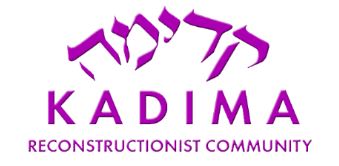Yom HaKippurim, literally, the day of the (multiple) atonements, has been drashed over and again as the day that is like Purim: yom (day) ha'k' (the likes) purim (of Purim).
But what does Yom Kippur and Purim have in common? For one, they are both days well beyond the ordinary. On one, we express this by abstaining from any food or drink, while on the other by excessive eating and drinking. Both Purim and Yom Kippur draw upon our relationship to uncertainty - one acknowledges the ways in which our enemies might strike arbitrarily (cursed be Haman) and the other acknowledges that we are lacking control in our lives in the refrain who shall live and who shall die. In each, we have a reluctant s/hero - Jonah who at first avoids prophecy and runs away from his calling, and Esther/Hadassah who does not want to hear Mordechai's ask of confronting the King.
Yet perhaps the most striking is the possibility in each of these holidays for reconciliation. Yom Kippur perhaps sets this up slightly more obviously: we are told that Yom Kippur atones for our relationship with G-d, but for relationships with other people, we must do the work of making things right. Similarly on Purim: we are told to go out and deliver treats to our neighbors and friends - mishlo'ach manot. In the days ahead, perhaps let us use this mitzvah of going out of our way to bring treats to others to notice who we feel hesitance to approach. For whom bringing a treat might be a confrontation of our own broken relationships. Perhaps this time can be used, should we choose, to reach out beyond the comfortable and bridge these two seemingly disparate holidays on opposite sides of the year - and in doing so, bridge a divide between ourselves and another human. May it be a season of increased joy uncovered through the repair of our relationships. Hag Purim simcha!
-Rabbi David
PS- Passover is coming! Check out this link for a preview of events, mutual aid, host-guest pairing, and more.

 RSS Feed
RSS Feed